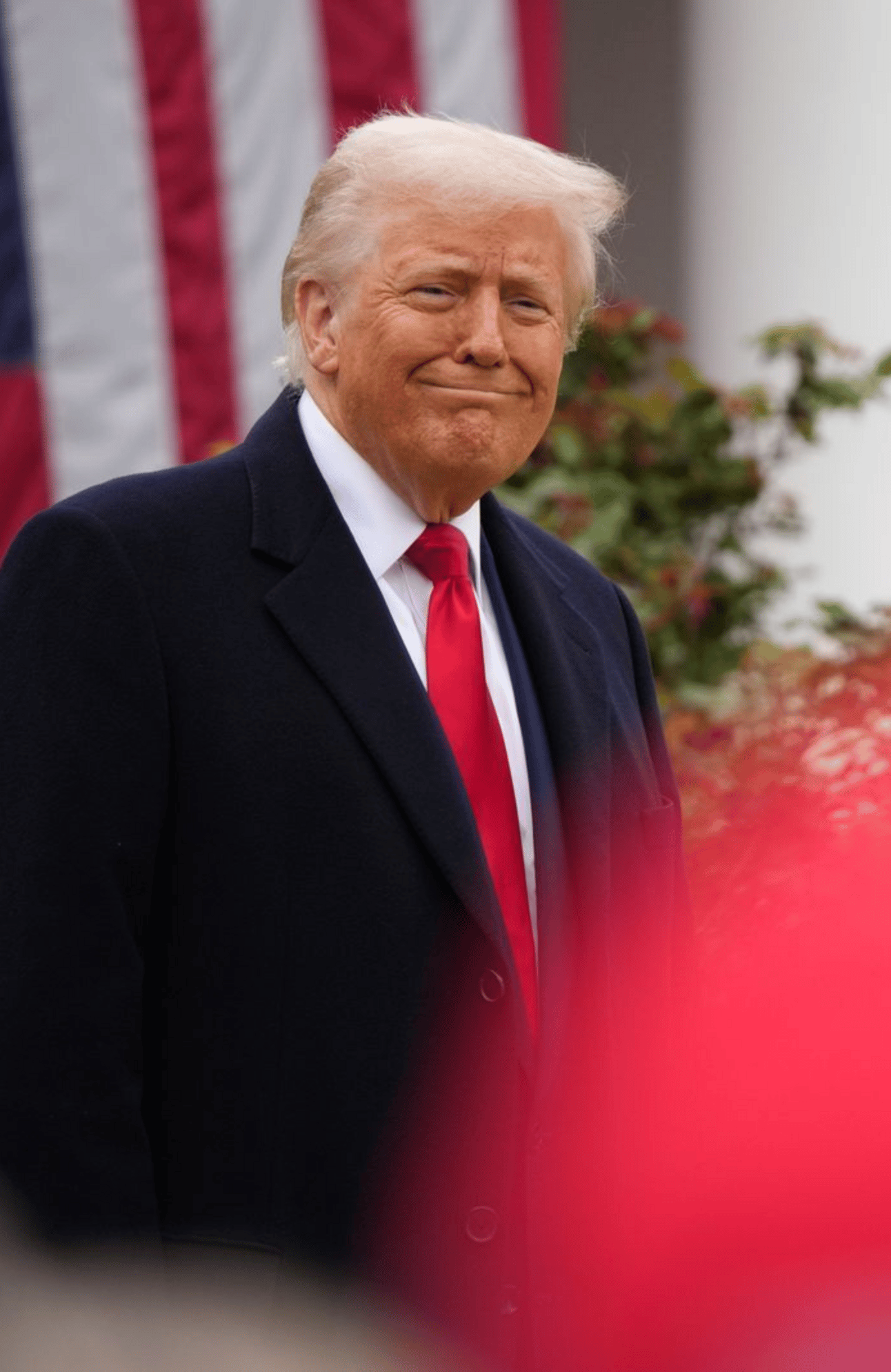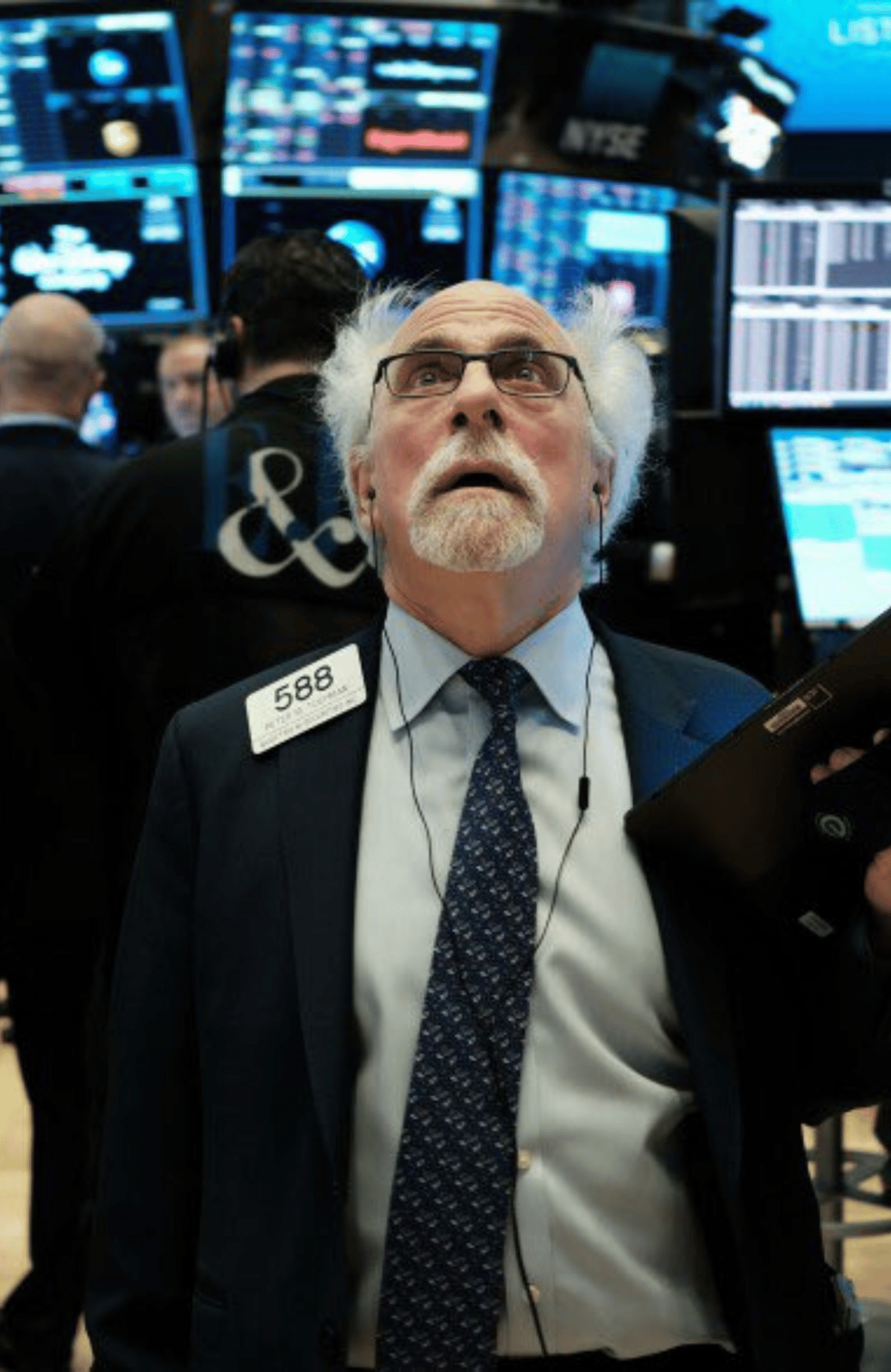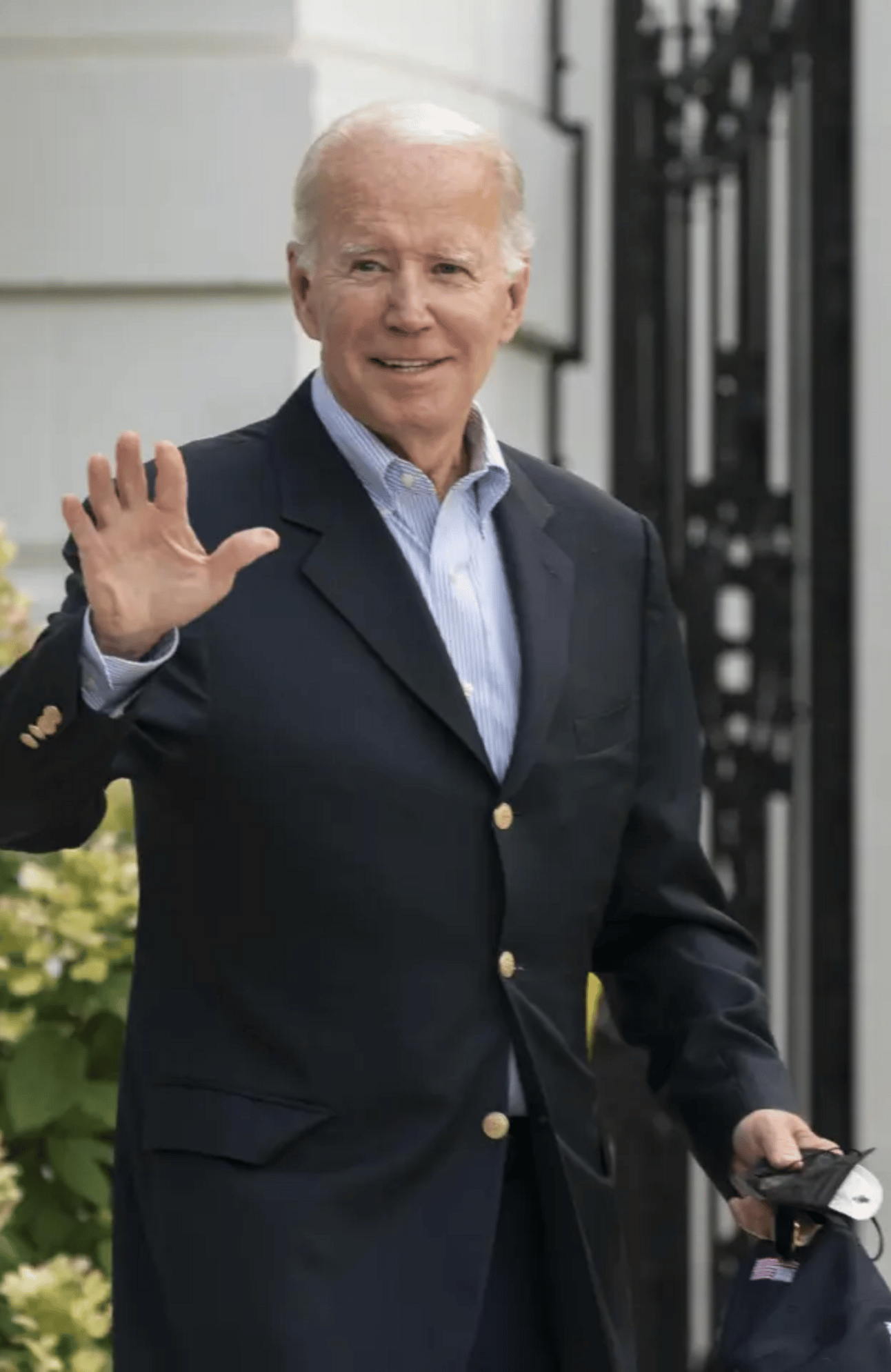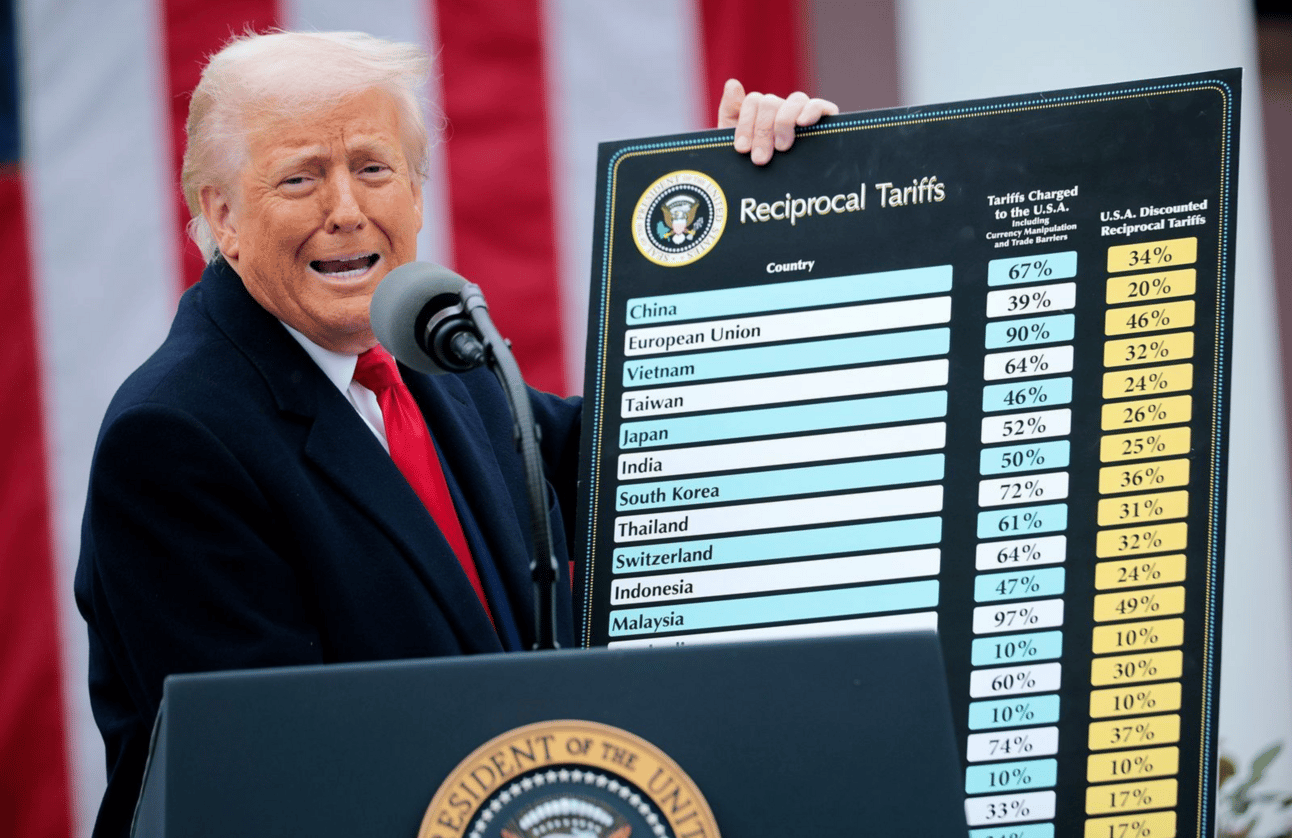- The Money Trails
- Posts
- The $33T Power Games Behind Trump's Tariffs
The $33T Power Games Behind Trump's Tariffs
Trump's Tariffs have triggered something far deeper than a trade war

 |  |  |
What’s in This Week’s Issue…
Good morning. Every modern product you use, from your iPhone to your car to your morning coffee, is powered by a global system of invisible deals, relationships, and trade routes.
It moves $33 trillion in goods and services across the world every year. It decides which nations prosper… and which ones fall behind.
But what happens when a superpower like the U.S. decides to blow that system up?
Because that’s exactly what’s happening now with the tariffs.
So this week…
🏆 The Big Play: What' Trump’s new tariffs tell us about the future of globalization
💪 The Power Move: Why global trade isn’t just about products — it’s about power
💵 Follow the Money: Wait, what? Biden hid early COVID exposure to service members in Wuhan?
-GEN
🏆 The Big Play
The biggest money power story of the week.
How Trump’s Tariffs Could Break the World Economy

Trump announcing the Liberation Day Tariffs
On April 2, 2025, now known as Liberation Day, Donald Trump announced the most aggressive tariffs in U.S. history.
It wasn’t just a policy shift. It was a message that America no longer wanted to depend on countries like China and Vietnam.
These tariffs were pitched as a great patriotic reset — a way to bring back supply chains, rebuild domestic factories, and protect American jobs.
Here’s what the numbers looked like:
34% tariffs on all Chinese goods
46% on Vietnam
34% on Japan
It was the largest single-day tax increase on imports since 1968. And this time, it doesn’t just affect one industry — it hits all of them.
But to understand the impact, you first need to understand how the global economy actually works:
1. How the Global Economic Order Works
Here’s what most people miss:
You don’t just “make a product” in one country anymore. You make parts of a product in dozens of countries, and the result is assembled everywhere.
This system is called global specialization. It’s built on:
Comparative advantage → Countries make what they’re best at
Multilateral trade rules → Tariffs stay low to make trade frictionless
Cheap global shipping → Parts move fast across oceans
The U.S. pioneered this system after WWII. It created alliances, stabilized economies, and lowered trade barriers.
In return, it built a world that worked for American consumers and companies:
iPhones for $799
Cars under $30K
Avocados year-round
Record profits for U.S. firms
Now, Trump is reversing it. The question is: What does it actually break?
2. How Tariffs Break the System: The Case of iPhone
Take a single iPhone.
It’s not just a phone. It’s a global supply chain in your pocket.
Chips from Taiwan
Camera sensors from Japan
Displays from South Korea
Batteries from China
Assembly in India, China, and Vietnam
Software from California
Apple doesn’t make the iPhone. It orchestrates it.
But now, every step in that supply chain is being taxed hard.
Before Liberation Day: iPhone production cost = ~$580
After Liberation Day: iPhone production cost = ~$870

The Bill of Materials (BOM) for an iPhone 16 Pro
That’s a 50% increase overnight.
If Apple tries to protect its margins, the base iPhone 16 will jump from $799 to $1,142 — more than a week’s median income in the U.S.
This doesn’t just hurt Apple. All transnational companies are in panic mode.
And consumers? They’re the ones who have to eat the cost.
But the iPhone is just one product. The deeper threat is what this means for the global economy itself.
3. What Happens When the System Breaks
Globalization isn’t just a strategy. It’s the operating system of the modern world.
Break that OS, and everything will lag, glitch, or crash.
The signals are already flashing red:
45% to 50% chance of a U.S. recession
Over $6 trillion wiped out from the stock market
Inflation is set to rise, costing an average of $3,800 more a year per American household
Despite these warning signs, Trump just increased tariffs on China to 125% while offering a 90-day pause and a 10% reciprocal tariff rate for other nations.
This isn’t just about more expensive phones. It’s about slower economic growth, shrinking global cooperation, and rising political instability.
And more important than that: it’s about trust.
Because once countries stop trusting the system, they stop playing by its rules.
And when that happens, they start building their own systems and make their own rules.
💪 The Power Moves
Playbook for understanding the game of power.
How You Can Gain an Edge When the System Resets

Stock Market reacting to the Liberation Day tariffs
When systems break, new power players emerge. And the first ones to understand the shift are usually the ones who win.
That’s the lesson buried inside this global trade war.
Trump’s Liberation Day Tariffs weren’t just economic, they were psychological. They signaled to the world that the global economic system as we know it is about to change.
So here’s what the big players are doing in response:
Corporations are rewiring supply chains → not for efficiency but for political risk (Apple shifting iPhone production to India)
Countries are redrawing alliances → not based on shared values but on shared leverage (Vietnam and Japan wanting to negotiate a deal with the U.S.)
Investors are betting on nations, not just stocks → placing capital where control beats chaos (TSMC investing $100 billion in the U.S.)
This is what it looks like when the global economy becomes a battleground for power.
The Takeaway
When the rules shift, the smart move isn’t to play harder, it’s to play differently.
Your edge as an individual isn’t in beating the system, it’s in noticing the ripple effects:
When global supply chains fracture, niche local businesses thrive.
When big companies shift markets, new freelance and small business demand opens up.
When tariffs raise prices, productizing expertise (and not labor) becomes more valuable.
That’s how you get ahead when the game is getting rewritten.
💵 Following the Money
Three of the wildest financial and corruption stories from around the world.

Biden and Kamala at their inauguration (circa January 2021)
✨ Poll time!
Would Liberation Day Tariffs make America stronger and more self-reliant? |


